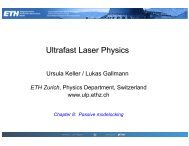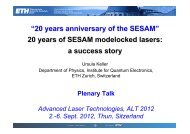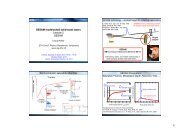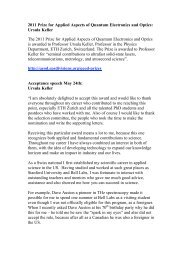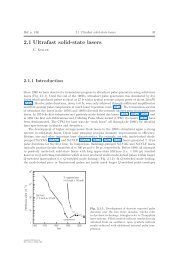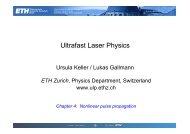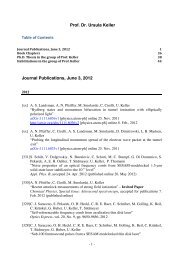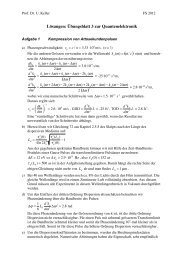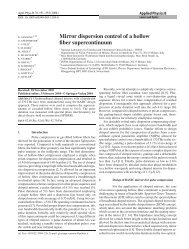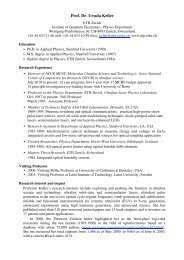LIMITATIONS OF GAUGE INVARIANCE
LIMITATIONS OF GAUGE INVARIANCE
LIMITATIONS OF GAUGE INVARIANCE
You also want an ePaper? Increase the reach of your titles
YUMPU automatically turns print PDFs into web optimized ePapers that Google loves.
FOOTNOTES ABOUT THE LORENTZ CONDITION<br />
One of the senior participants in the Joint Theoretical Physics Colloquium expressed a dislike for<br />
the Lorentz condition.<br />
I disagree, based on its necessity for decoupling the inhomogeneous wave equations for scalar<br />
and vector potentials. Arguments based on approximations that relieve the necessity for strict<br />
adherence to the Lorentz condition become questionable when fields are strong.<br />
There is a superficial discrepancy in the LG, where A = 0 and /t 0, but this is not essential<br />
because there is no wave equation for A from which to decouple. However, the fact that<br />
/t 0 IS important because the wave equation for then requires a source density ,<br />
whereas a plane wave does not require any sources. This just emphasizes the unphysical nature<br />
of the LG for description of PW phenomena.<br />
There is a separate issue with the Coulomb gauge. It is stated in many textbooks (including<br />
Jackson) that a defining condition for the Coulomb gauge is that A= 0.<br />
That condition, plus the constraint = 0 , leads to the Lorentz condition being satisfied.<br />
However, there is no covariant (completely relativistic) equivalent for this, whereas the Lorentz<br />
condition in its full form does have a covariant statement.<br />
6





